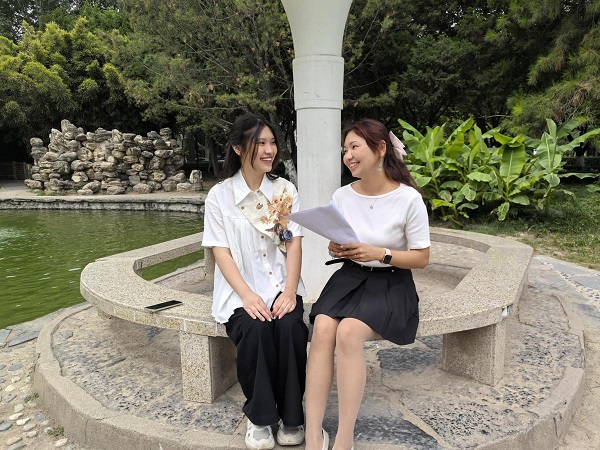XJTU makes progress in bacteria-triggered solar hydrogen production
A joint research group consisting of Professor He Gang from the Frontier Institute of Science and Technology, Xi'an Jiaotong University (XJTU) and CAS academician He Yaling from the School of Energy and Power Engineering has made progress on bacteria-triggered solar hydrogen production.
They have developed a series of chalcogen-containing viologens that have narrow energy gaps, absorption in the visible region, and excellent redox properties, making them useful as both photosensitizers and electrons for visible light-splitting water for hydrogen production. The use of a transfer agent greatly simplifies visible light catalytic systems and improves hydrogen production performance.
On the basis of previous research on chalcogen-containing viologen, the research group used terpyridine platinum (II) as a catalytic center to connect to the side chain of chalcogen-containing viologen through covalent bonds and synthesized platinum-coordinated sulfur-containing viologen.
The group element viologen (PtL+-EV2+, E=S, Se, Te), a kind of material, has stronger absorption in the visible light region, and at the same time acts as a single molecule photosensitizer, electron transfer agent and catalyst.

Cell and mouse toxicity tests confirmed that the material has low environmental toxicity and could be used in water treatment. By taking actual environmental sewage as a water source and adding a certain amount of selenium viologen derivatives, the system can realize hydrogen production, as well as antibacterial and acid removal performance, under light conditions.
This work provides an easy way to address issues concerning energy production, environmental protection, and water resources.
The above findings were published in Angewandte Chemie International Edition under the title Bacteria-Triggered Solar Hydrogen Production via Platinum(II) Tethered Chalcogenoviologens.
Assistant professor Li Guoping and PhD alumnus Zhou Kun of the university are the co-first authors of the paper, and the university is the only corresponding author unit of the paper. The research was funded by the National Natural Science Foundation of China.
Due to its environmental and economic advantages, using water photolysis to produce hydrogen has become a hot topic for researchers in recent years.
Link to the paper: https://onlinelibrary.wiley.com/doi/10.1002/anie.202115298

